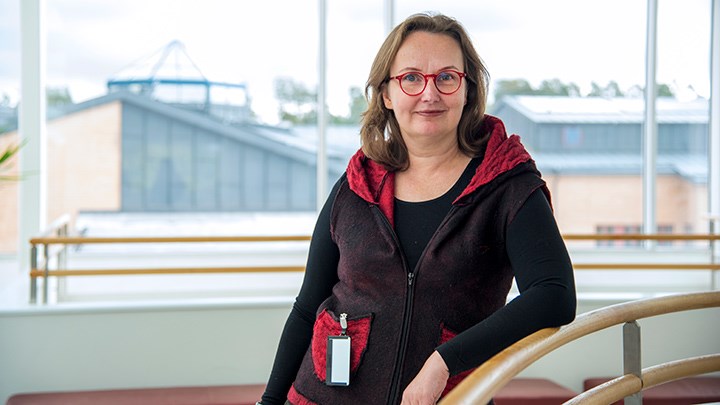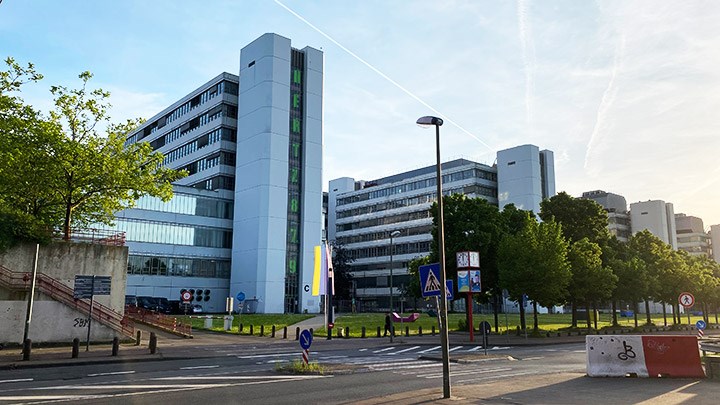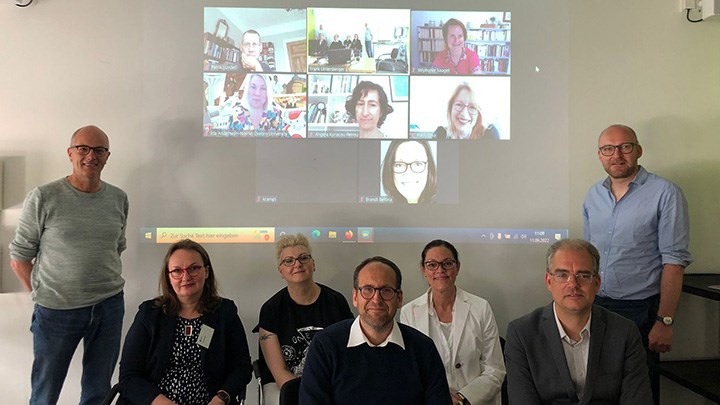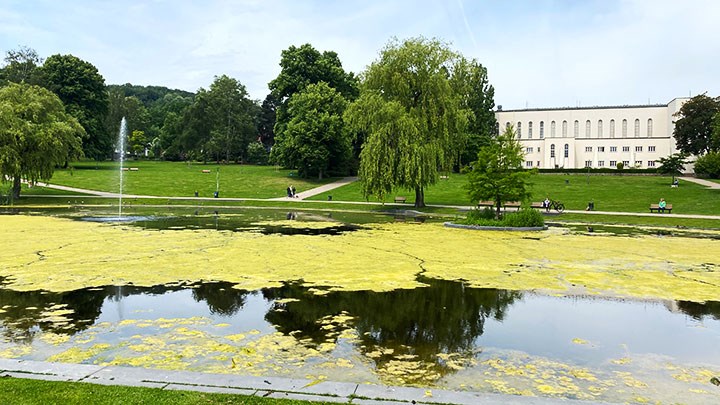Izabela Dahl as visiting professor in Bielefeld: “valuable qualification as a researcher and teacher”

“It’s always been about finding synergies,” says Izabela Dahl about the collaboration.
When Izabela Dahl was offered a visiting professor position at Bielefeld University in Germany, she recognised a chance for personal development and the opportunity to develop the subject of history at Örebro University.
“It’s been a fantastic experience so far.”
For almost a year, Izabela Dahl has been a visiting professor at Bielefeld University within the framework of the European university alliance NEOLAiA – a collaboration between nine young higher education institutions that have applied to form a European university.
“In Europe, Bielefeld is known for its research in history, both in theory and method. It wasn’t hard to accept such an offer,” says Izabela Dahl, senior lecturer in history at Örebro University.
Due to the pandemic, most collaboration efforts last year were remote. This past spring and for six weeks, Izabela Dahl was on campus in Bielefeld. She lectured on memory culture, and along with a colleague, taught a doctoral studies theory course. This same course was also available to doctoral students in history at Örebro University.
“It has been an enriching experience for me as a researcher to be on-site in Bielefeld. I have gained a stronger anchoring in my research dealing with memory culture and broadened my international network,” she says.

Doctoral education exchange programme
Izabela Dahl has developed a collaboration between the universities in dialogue with her colleagues in Germany. In addition, she is a co-supervisor for a doctoral student at Bielefeld University, and this autumn, a researcher has been in Örebro as a visiting lecturer.
“It’s always been about finding synergies. Collaboration has led to doctoral students in Örebro receiving external input in a structured way.”
There are plans to start joint second-cycle courses in history. Another NEOLAiA-partner is also involved in these discussions, Ostrava University in the Czech Republic.
“At Örebro University, we currently have undergraduate and doctoral studies in history but no courses at the master's level. Together within NEOLAiA, I hope we can develop joint master's level courses and offer teaching in mixed learning environments,” explains Izabela Dahl.

Started with an email
Örebro and Bielefeld’s collaboration started with an email. Izabela Dahl was offered a visiting professor position at the university after meeting a history research colleague at a conference.
“They were interested in my research and wanted to start a research collaboration. It was that simple. Which can lead to valuable qualifications as a researcher and teacher,” she says, continuing:
“We’ve received great support from both universities with the administrative part of our collaboration. You just have to dare to step out of your comfort zone.”

Text: Jasenka Dobric
Photo: Izabela Dahl and Jasenka Dobric
Translation: Jerry Gray
Örebro University is one of nine young European universities that together form the alliance NEOLAiA. The other universities are Bielefeld University (Germany), University of Jaén (Spain), University of Nicosia (Cyprus), University of Ostrava (Czech Republic), University of Salerno (Italy), University of Suceava (Romania), University of Tours (France) and Šiauliai State University of Applied Sciences (Lithuania).
The initiative strengthens the universities’ international competitiveness and provides increased opportunities for the internationalisation of education, research, and collaboration.

